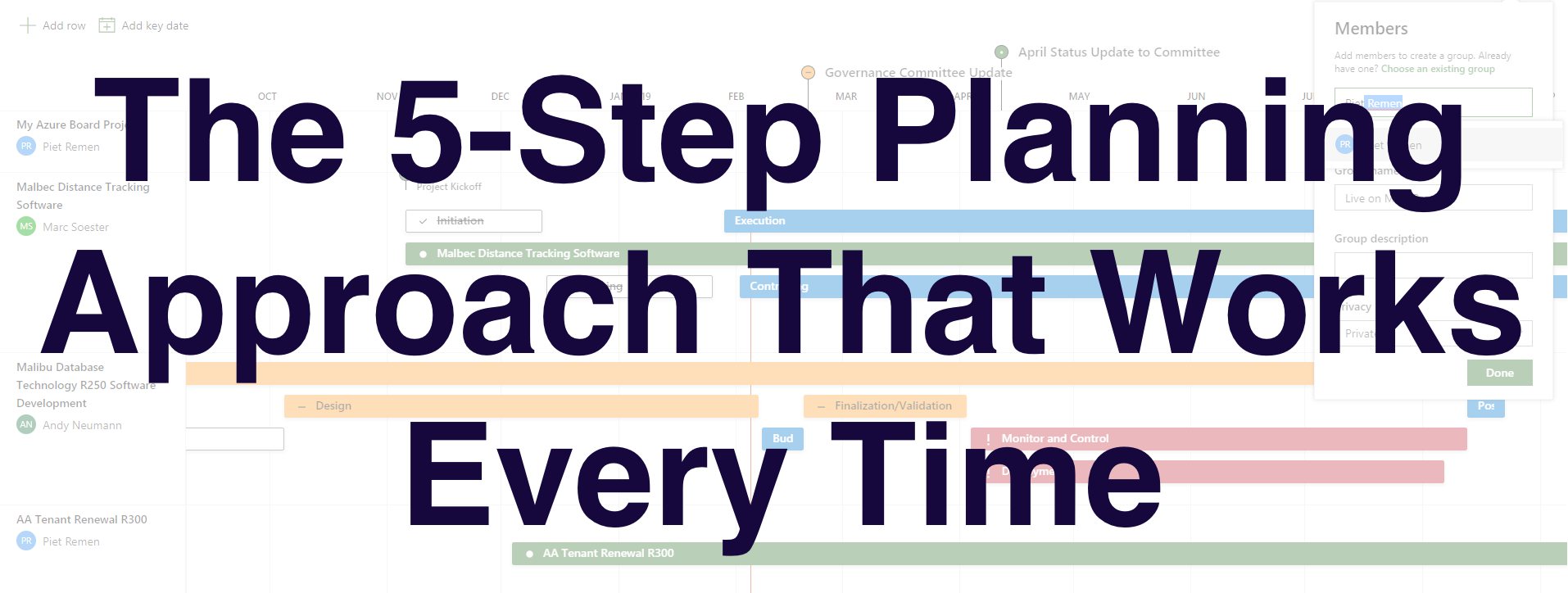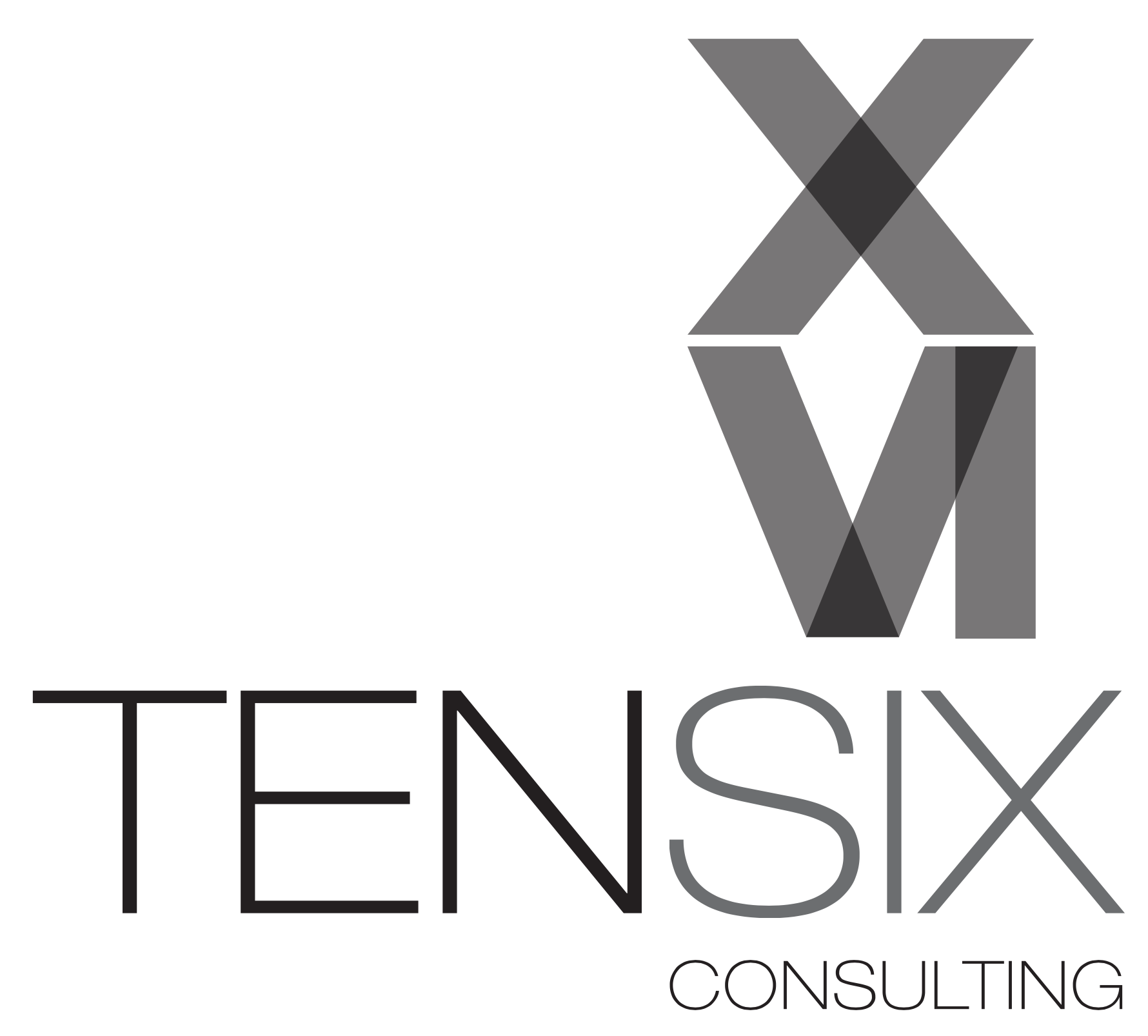 A Planning Approach That Works
A Planning Approach That Works
A great project schedule is key to successful delivery. As a PMO team, you want to support project managers in creating their schedules both for the day-to-day management of the project and also because schedules provide useful information for decision-making.
Every project manager has their own preferred way of creating a project schedule – and let’s be honest, some approaches work better than others. You’ve probably come across individuals who say the deadlines they’ve been given are unrealistic because they either didn’t have the opportunity to input into the plan or they were consulted and then ignored.
While there are lots of different approaches for gathering information for the project schedule, in our experience there’s one clear process for planning. If you stick to these five steps, you’ll end up with a solid project schedule every time.
Step 1. Define the problem
First, you have to agree what the problem is – what the planned work is going to solve. It might take several attempts to get clarity on the problem. Often, what you think you are doing isn’t exactly what the project sponsor wants. Or once you start to plan out the work, you realize that other enabling work needs to be completed first, so your project has to start with that. Or you uncover a new problem as you elicit requirements, and need to agree whether that issue is in scope of the current project or not.
At the end of this step you should have a clear understanding of what is to be done, and probably a good idea of the tasks involved too.
Step 2. Agree the approach
Today, many PMOs support multiple methods and approaches. You may have teams using agile approaches and others doing their work with predominantly predictive methodologies. Some teams take a hybrid approach, blending the best of both predictive and iterative work methods.
The next step in the planning process is to match a delivery approach to the project. The right approach for doing the work depends on lots of factors including:
- What is being delivered and what’s the solution
- How much uncertainty there is in the solution
- The expected duration of the project
- Team experience and preferences
- Required governance approaches.
In the main, you can adapt any method to work with any project, but there are some projects that lend themselves to use one delivery methodology over another. For example, a customer-facing digital project where the customer does not have clear requirements would be a good fit for a Scrum team. A civil engineering project that stretches over five years would be a candidate for a predictive approach.
Your PMO may already have guidelines to help project teams choose an appropriate method.
Step 3. Identify connections
Next, identify the interconnectedness in the work and the team.
Look for dependencies between tasks, but also the socio-political and organizational cultural aspects of the project that connect the people. Consider where this project overlaps with other work and what that means for the portfolio.
Connect the dots between stakeholders, budgets, risk and leadership so you can see how this project fits within the ecosystem of the organization.
Dependency management at a task level inside the project is also important. Team members benefit from knowing how their work feeds into their colleagues’ tasks. Having visibility of dependencies will ensure that the team knows where to focus their efforts in order to ensure the project stays on track.
Map the tasks and connections together as the basis for your project schedule.
Step 4. Quantify the risk
The fourth step in the planning process is to identify and quantify the risks.
We talk a lot about risk management on our blog, through the various risk training courses we run, and the support we offer clients. That’s because understanding the risk profile of any given project is essential for its success.
The effort here should be two-fold. First, identify the risks inherent within the project: risks that link to the work that is going to be done and the likelihood of success for the plan. Hold a risk workshop to identify project risk and plan management actions to address them.
Second, consider the risk of the approach. How much risk are you introducing to the project because of the way you choose to manage it? For example, a distributed, matrix team may introduce more risk to the project than a team that reports directly to the project manager. Of course, if the project manager isn’t any good at people management, that introduces a different kind of risk!
There’s no right or wrong answer here, it’s simply about understanding the environment in which you are managing and doing your best to address any risks that are introduced because of those choices.
Step 5. Share the plan
Finally, share the plan with the customer and stakeholders. The team will already have seen it – at least in draft form, as they will have been involved with putting together the work and dependencies. It’s worth making sure everyone has a copy of the final, completed version – as far as any project schedule is ever ‘final’.
The planning approach process is iterative, which means you don’t simply go through the steps once. As the project evolves, more requirements become known or the context of the work changes, you plan as a team for a second, third, forth or hundredth time. Each time something changes, go back to the original plan and step through the process to ensure that the problem is understood and that there are clear next steps.
Improving your planning processes gives you greater repeatability, more chance of project success and a reliable framework for implementing strategic and tactical change. This five-step planning approach is the start of a well-executed project.
